Topic: ACToday
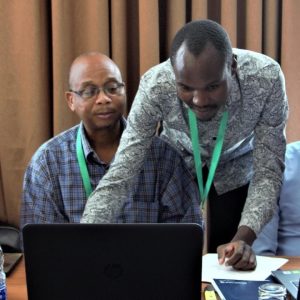
Meet the next generation of Africa’s climate forecasters
Written by Amanda Grossi and Francesco Fiondella This story is adapted from one originally published by Accelerating Impacts of CGIAR Climate Research for Africa (AICCRA). New state-of-the-art forecasting systems developed at IRI are enabling regional and national meteorological agencies to generate timely and decision-relevant climate information for their agricultural sectors. East Africa is experiencing some […]
Will Coffee Go Extinct?
— Council on Foreign Relations
Looking Back at President Bollinger’s Landmark Initiatives
— State of the Planet
Understanding CMIP6 biases in the representation of the Greater Horn of Africa long and short rains
Author(s):
From research to practice: Adapting agriculture to climate today for tomorrow in Ethiopia
Author(s):
Re-prioritizing climate services for agriculture: Insights from Bangladesh
Author(s):
AICCRA Ethiopia launches agricultural drought monitoring and warning platform
This post originally appeared on the AICCRA / CGIAR blog. In the presence of key stakeholders from federal, regional, public, and private sector institutions, Ethiopia launches a milestone NextGen Agricultural Drought Monitoring and Warning System. “Drought is known to Ethiopians from time immemorial,” declared Minister of Agriculture Oumer Hussien, recalling dramatic images from Ethiopia’s 1972 […]
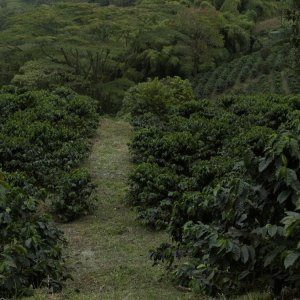
2021 Highlights from the ACToday Columbia World Project
Latest updates from the ACToday Columbia World Project, which has been developing climate services and other solutions to address food security in six countries.
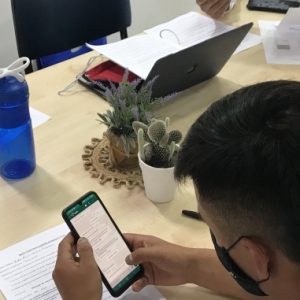
Crowdsourcing to Build Better Insurance
In order to offer protective insurance to even greater numbers of smallholder farmers, in 2021 ACToday began testing mobile crowdsourcing apps that tap into the experiences and memories of farmers themselves.
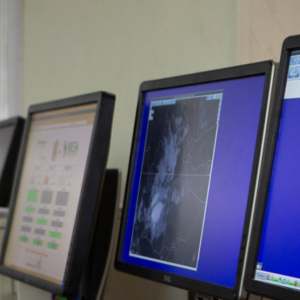
Empowering National Meteorological Services
An important part of ACToday’s goal of increasing food security has been to help develop new climate services that lead to better agricultural decision making. National frameworks for climate services serve this strategy in two important ways – by getting national meteorological services the recognition and support they need from national budgets and international donors, and by placing climate services at the center of adaptation efforts.
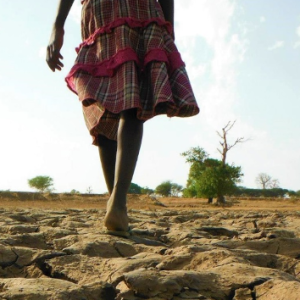
The Climate-Nutrition Connection in Food Security
In 2021, ACToday’s Senegal team formalized a partnership with the Human Food and Nutrition Research Laboratory at Cheikh Anta Diop University – Senegal’s most prestigious higher education institution and home to the country’s largest graduate training programs. The partnership aims to address one of the most under-researched topics in development – the links between climate and nutrition.
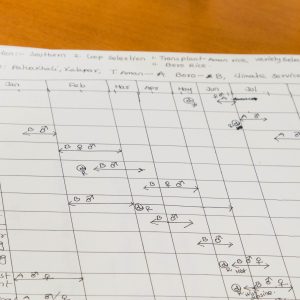
Building a Global Community of Climate-Trained Decision Makers
One of the key objectives of ACToday is to strengthen the capacity of local governments and stakeholders to effectively interpret and use climate data to infom policy and planning. In the last year, the project’s six country teams conducted 52 trainings for more than 1,600 government, private-sector and nonprofit professionals as well as graduate students.
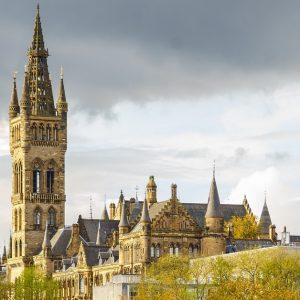
IRI at COP26 – Mélody Braun on Why COP Matters
The United Nations’ twenty-sixth Conference of the Parties, or COP26, is taking place in Glasgow, Scotland from October 30 to November 12. The COP is the largest and most important international meeting on climate change. The countries involved come together to make a number of crucial decisions to stabilize greenhouse gas emissions in order to […]
A Coffee Yield Next-Generation Forecast System for Rain-fed Plantations: the Case of the Samalá Watershed in Guatemala
Author(s):
Seasonal predictability of Ethiopian Kiremt rainfall and forecast skill of ECMWF’s SEAS5 model
Author(s):
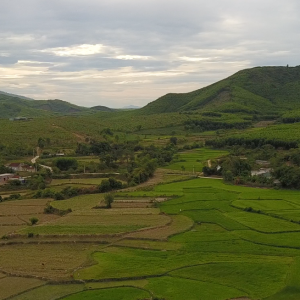
Building Sustainable Climate Solutions for Food Security – ACToday Project
On September 24, during Climate Week NYC, the International Research Institute for Climate and Society and Columbia World Projects hosted an event to showcase the successes of its Adapting Agriculture to Climate Today, for Tomorrow (ACToday) project, which is working to reduce climate threats to food systems in Bangladesh, Colombia, Ethiopia, Guatemala, Senegal and Vietnam. […]
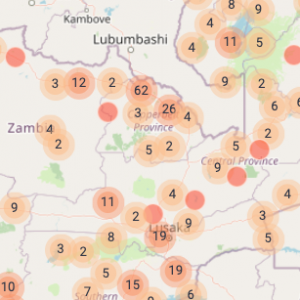
Insurance Tools for Climate Adaptation: Q&A with Rahel Diro
The world’s 570 million smallholder farmers are among the most vulnerable to the impacts of current and future climate variability and climate change. They need support and science-based strategies to make their communities resilient to these impacts and enable them to have sustainable livelihoods no matter what the climate might bring. One adaptation strategy being […]
Workshop Report: ACToday Vietnam – Fundamentals of Index Insurance Course, March 2020
Author(s):
Climate Services Ecosystems in times of COVID-19
Author(s):
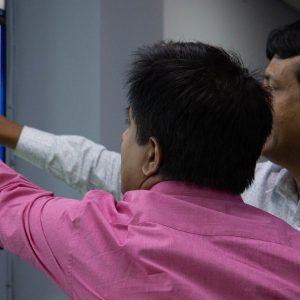
Virtual Climate Services Training for Professionals in Bangladesh
In the pre-pandemic era, much of the work of expanding the capacity of government agencies, meteorological departments, and local partners to combat hunger by increasing climate knowledge carried out by the Adapting Agriculture to Climate Today, for Tomorrow (ACToday) Columbia World Project took place in-person. Staff from the International Research Institute for Climate and Society […]
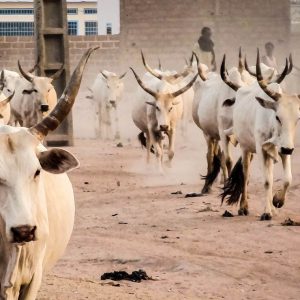
Beyond Food Security: ACToday Addressing Climate-Nutrition Linkages in Senegal
The Adapting Agriculture to Climate Today, for Tomorrow (ACToday) Columbia World Project is working with Senegal’s Cheikh Anta Diop University (UCAD), home to the country’s largest master’s and doctoral training programs, to address one of the most under-researched topics in development: the links between climate and nutrition. In March, ACToday-Senegal hosted an online event that […]
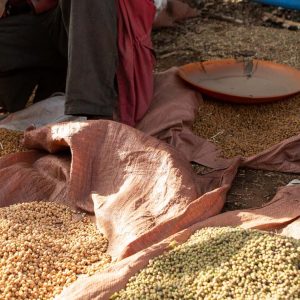
Launching Ethiopia’s Future in Climate Services
The ACToday Columbia World Project has supported the government of Ethiopia in launching a national climate plan that will ensure the availability of the best climate information and use of that information to guide the country’s adaptation strategies for years to come. Ethiopia’s National Meteorological Agency (NMA) unveiled the new plan, which it developed in […]
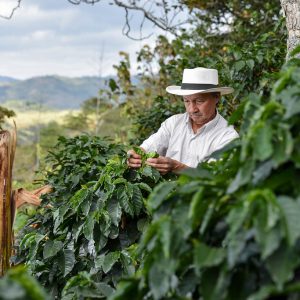
Is Climate Change Putting the Future of Coffee at Risk?
IRI and Fairtrade International host a virtual event about the future of coffee production in a changing climate
Climate Impacts on Nutrition in Senegal
Author(s):
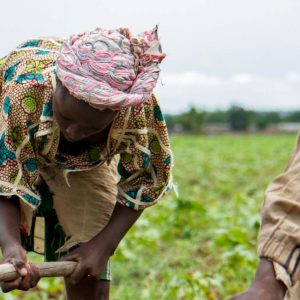
IRI a Key Partner in New World Bank-funded Climate Resilience Project
Columbia Climate School’s International Research Institute for Climate and Society (IRI) is a major partner in a new $60 million climate resilience project for agriculture in Africa, funded by the World Bank and led by the CGIAR Research Program on Climate Change, Agriculture and Food Security (CCAFS).

Colombia, Guatemala adopt ENACTS Climate Data Initiative
The Adapting Agriculture to Climate Today, for Tomorrow Columbia World Project is working with the governments of Colombia and Guatemala to implement a climate data initiative called Enhancing National Climate Services, or ENACTS, to help them better integrate climate knowledge into national-level planning and policy. Since 2014, ENACTS has helped countries facilitate the integration of […]
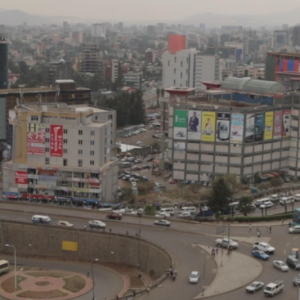
2021 ACToday Highlight: Progress in a Pandemic
This story was published as part of the Adapting Agriculture to Climate Today, for Tomorrow (ACToday) Columbia World Project 2021 Report. Read the full report here. ACToday relied on its strong, collaborative partnerships with country partners when the COVID-19 pandemic struck and all international travel ceased. Two examples from Bangladesh and Vietnam show how country teams […]
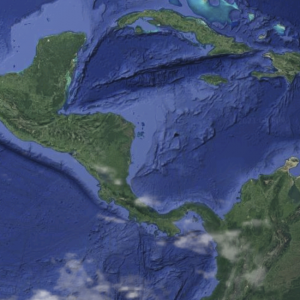
2021 ACToday Report: From Two Countries to Ten: A Region Receives Powerful Climate Forecasting Boost
This story was published as part of the Adapting Agriculture to Climate Today, for Tomorrow (ACToday) Columbia World Project 2021 Report. Read the full report here. ACToday has worked with the national governments of all six countries where the project operates to design and deploy a state-of-the-art forecasting system known as NextGen. In 2019, NextGen was […]
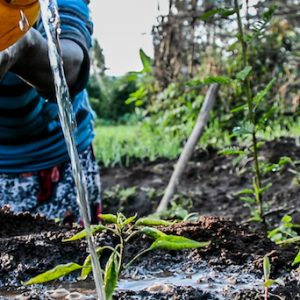
2021 ACToday Highlight: Helping Provide Insurance to a Million Smallholder Farmers
This story was published as part of the Adapting Agriculture to Climate Today, for Tomorrow (ACToday) Columbia World Project 2021 Report. Read the full report here. Since its launch in 2017, ACToday has invested in forecasts, monitoring tools and other information products to help government agencies, humanitarian organizations and farmers better plan for droughts and […]
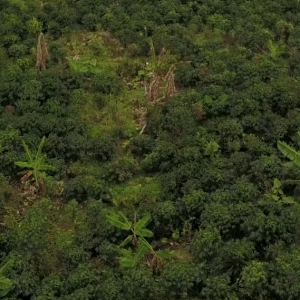
2021 ACToday Highlight: Boosting the Climate Resilience of the Billion-Dollar Coffee Sectors in Guatemala and Vietnam
This story was published as part of the Adapting Agriculture to Climate Today, for Tomorrow (ACToday) Columbia World Project 2021 Report. Read the full report here. ACToday operates in four of the top ten coffee-producing countries in the world: Colombia, Ethiopia, Guatemala and Vietnam. Minimizing climate risks to coffee production is a strategic component of ACToday’s […]
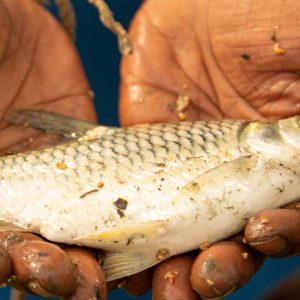
Video: From Farm to Training in Bangladesh
The Adapting Agriculture to Climate Today, for Tomorrow (ACToday) Columbia World Project has been co-organizing yearly trainings in Dhaka to help farmers and other decision makers understand how to access climate information and how that access can help them develop mitigation strategies for climate impacts on agriculture. In 2019, ACToday and its partners organized a […]

Report: 2020-2021 Highlights from the ACToday Columbia World Project
By Lisa Goddard and Walter Baethgen, co-leads of ACToday We are excited to share our latest highlights from the Adapting Agriculture to Climate Today, for Tomorrow (ACToday) Columbia World Project. During a period marked by global upheaval and tragedy caused by the COVID-19 pandemic, we have been especially inspired to keep our work on track. […]
Intense precipitation events during the monsoon season in Bangladesh as captured by satellite-based products
Author(s):
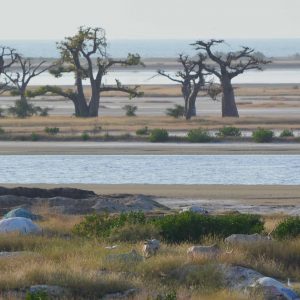
Combining Indigenous and Scientific Knowledge Enhances Fire Management in the Sahel
This blog was originally published on the Earth Institute’s State of the Planet blog. It was written by Natalie Duncan, an intern with IRI’s Adapting Agriculture to Climate Today, for Tomorrow (ACToday) project. The Sahel is an unforgivingly hot and arid belt stretching across the African continent, from Senegal to Chad. It marks the transitional […]
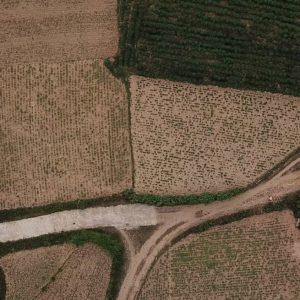
Improving Risk Indicators: Introducing the Next Generation Drought Index Project
Across the globe, food security continues to be a significant challenge, one that is estimated to increase with the compounding factors of the COVID-19 pandemic and climate change. The Next Generation Drought Index (NGDI) project addresses this challenge by leveraging satellite technology and drought modeling to provide humanitarian and development agencies access to the latest and most […]
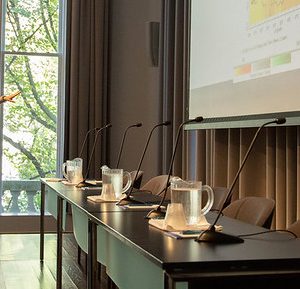
Q&A with Lisa Goddard on Leadership in Climate Science
Lisa Goddard’s career at the International Research Institute for Climate and Society stretches back to when the institute was based on the West Coast and some of its scientists surfed on their lunch breaks (we won’t name names…). Goddard is internationally recognized for her work in climate science, and has held several leadership positions in […]

A New Definition of Rainy Season Onset Dates In Vietnam Tailored to Agriculture
Researchers at the International Research Institute for Climate and Society have found a significant relationship between the El Niño-Southern Oscillation (ENSO) and the start of the rainy seasons in two agriculturally important regions of Vietnam: the Central Highlands, where most of the country’s coffee crop is grown, and the Mekong River Delta, which produces the […]
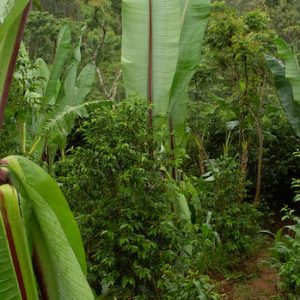
Coffee for the birds: Connecting bird-watchers with shade-grown coffee
Adapted from a release published by Virginia Tech. Since 1970, bird populations in North America have declined by approximately 2.9 billion birds, a loss of more than one in four birds. Factors in this decline include habitat loss and ecosystem degradation from human actions on the landscape. At the same time, enthusiasm for bird-watching has […]
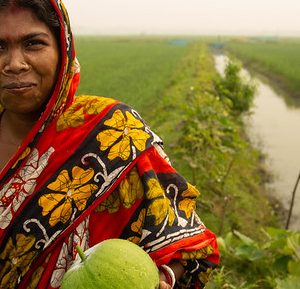
Video: Adapting Agriculture to Climate Today, for Tomorrow
For decades, the International Research Institute for Climate and Society has worked across the globe to build climate information resources. Adapting Agriculture to Climate Today, for Tomorrow (ACToday), a Columbia World Project, is in many ways a culmination of this work. The project aims to combat hunger by increasing climate knowledge in six countries that […]
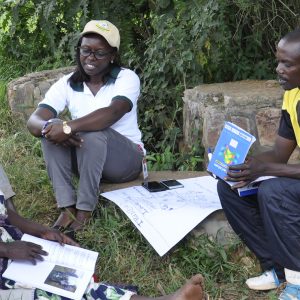
Q&A: Gloriose Nsengiyumva on Building Farmer-Inclusive Climate Services
Seasonal climate forecasts can help farmers stave off poverty and hunger. Nsengiyumva helps farmers in Africa interpret those forecasts and helps bring them into the design and development process of new climate services.
Characteristic of the Regional Rainy Season Onset over Vietnam: Tailoring to Agricultural Application
Author(s):
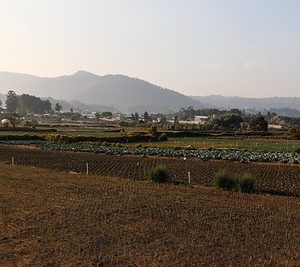
Climate Services for Locally-Led Adaptation
During a session of the Gobeshona Global Conference on January 21, 2021, Ángel G. Muñoz and Carmen González Romero led a discussion on climate services ecosystems, a concept which they and others at the International Research Institute for Climate and Society introduced recently in a paper in the World Meteorological Bulletin. Muñoz and González described […]

Helping Vietnam’s Coffee Sector Become More Climate Resilient
A new platform aims to use digital technology to help Vietnamese coffee farmers lower costs, boost yields and increase profits.
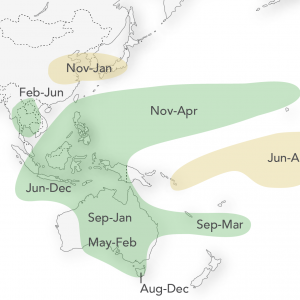
New data and tools bring a deeper understanding of El Niño
Updated maps document expected impacts of ENSO conditions for decision makers across the globe. In 2001, the International Research Institute for Climate and Society’s Simon Mason and Lisa Goddard published an important analysis of how El Niño and La Niña events historically have influenced rainfall around the world. Out of that analysis they produced a […]
Student Spotlight: Finding ways for climate services to improve nutrition in Vietnam
By Joseph Conway During the summer of 2019, Pranav Singh, a graduate student at Columbia University’s School of International and Public Affairs, interned in Hanoi, Vietnam for the Adapting Agriculture to Climate Today, for Tomorrow (ACToday) Columbia World Project. Singh’s work focused on understanding where climate services–weather forecasts, early-warning systems, climate predictions and other resources–could […]
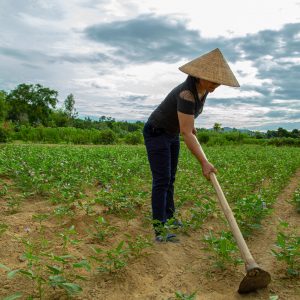
Identifying climate service entry points to improve nutrition and climate adaptability in Vietnam
This blog was originally posted to the CGIAR Research Program on Climate Change, Agriculture and Food Security (CCAFS) website and was authored by Joseph Conway and Pranav Singh. Vietnam has been deemed by the Intergovernmental Panel on Climate Change (IPCC) as one of the most vulnerable countries in the world to the impacts of climate […]
Researchers develop system to monitor and forecast the environmental suitability of transmission of Zika, dengue fever and chikungunya
— Outbreak News Today
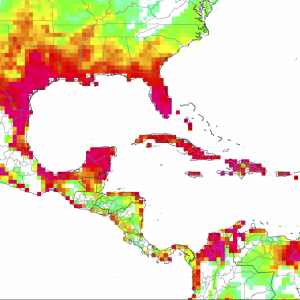
Realtime Tracking and Forecasting of Outbreak Risk of Dengue, Zika and other Aedes-transmitted Diseases
New system infuses ‘R0’ models with climate information to help public health agencies forecast places and times when environmental conditions might enhance transmission of dengue, Zika and other Aedes-borne diseases
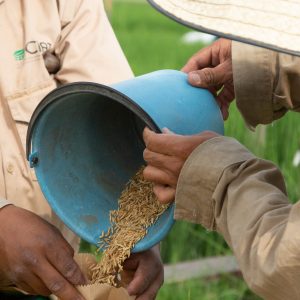
Climate Risk Insurance for Colombia’s Smallholder Rice Farmers
The Adapting Agriculture to Climate Today, for Tomorrow (ACToday) Columbia World Project has helped create advanced and sustainable climate services around the world tailored for agricultural decision making. Countries are using these new services to manage many of the climate-related risks to their food systems. But even the best climate services by themselves cannot manage […]
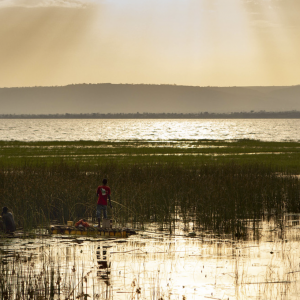
ACToday Experts Take Part in Panel on Climate and Food Security
Adapted from a news story by Columbia World Projects. Scientists and other experts from the Adapting Agriculture to Climate Today, for Tomorrow (ACToday) Project, joined former New York Times journalist Andrew Revkin for an online web seminar on May 7 to discuss the intersection of food, climate and coronavirus. The event – “Feeding Humanity as […]
Why food systems should be strengthened during COVID-19
— Scidev
Science-led solutions needed for Lower Mekong region: Experts
— Hanoi Times
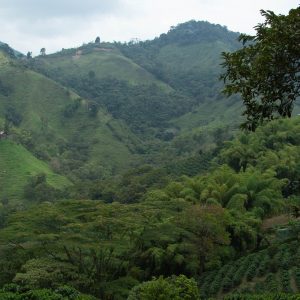
Partners in Growth
Video interview with Steve Prager from Alliance Bioversity-CIAT discusses the importance of partnerships and the unique relationship with ACToday.
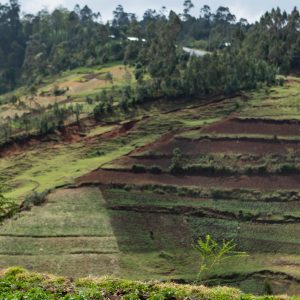
The Roots of their Work
Adapting Agriculture to Climate Today, for Tomorrow, or ACToday, is the first Columbia World Project. ACToday aims to combat hunger and improve food security by increasing climate knowledge in six countries that are particularly dependent on agriculture and vulnerable to the effects of climate change and fluctuations—Ethiopia, Senegal, Bangladesh, Vietnam, Colombia and Guatemala. For a […]
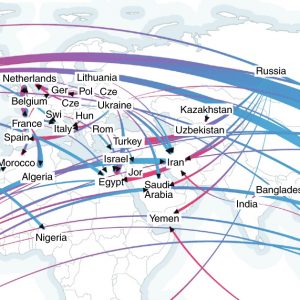
COVID19 Disruptions: Understanding Food Security Implications
According to the U.N. Food and Agriculture Organization, the COVID19 pandemic is impacting the world’s food systems and disrupting regional agricultural trade and value chains. The FAO has warned that food shortages are a real risk in the coming months. The rapid global spread of the virus poses a worrisome add-on threat to millions of […]
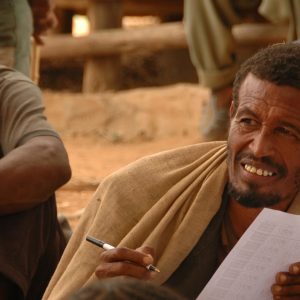
ACToday Columbia World Project enabling insurance to reach a million farmers in Ethiopia
The Adapting Agriculture to Climate Today, for Tomorrow Columbia World Project (ACToday) has been working with its Ethiopian partners to create new climate tools for decision makers working in agriculture and food security. These investments are now directly enabling the World Food Programme (WFP) to reach its 2022 target of providing a million smallholder farmers in Ethiopia with affordable insurance against droughts and other climate risks.
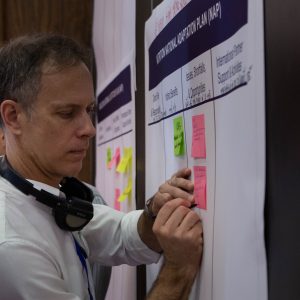
John Furlow: Helping Developing Countries Adapt to Climate Change
This piece was written by Sarah Fecht of the Earth Institute and originally published on the State of the Planet blog. John Furlow has spent more than a decade working with developing countries on the frontlines of climate change, helping them to adapt to changing conditions. Before he came to Columbia University’s International Research Institute […]
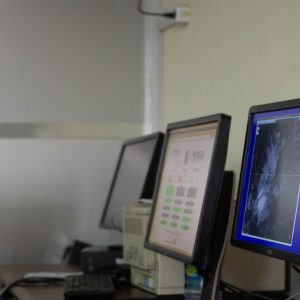
ACToday: COVID-19 Update
The global coronavirus pandemic has disrupted most aspects of life in the United States. Our work on the Adapting Agriculture to Climate Today, for Tomorrow (ACToday) project is no exception. Columbia University has closed its campuses to all but essential personnel. IRI’s staff is now fully set up to work from home. We must keep […]
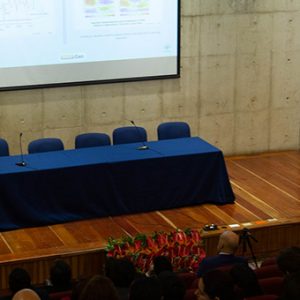
Video: Launch of NextGen in Colombia
In August of 2019, Colombia’s national meteorological service, IDEAM, launched a state-of-the-art climate forecasting system called NextGen. You can read more about this milestone in our latest report about the Adapting Agriculture to Climate Today, for Tomorrow (ACToday). Below is a video we’ve produced celebrating the launch and the many organizations involved. “It is extraordinary to […]
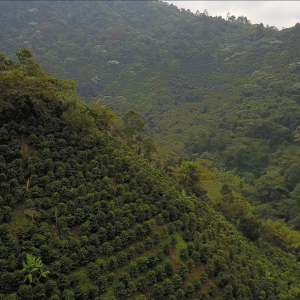
Report: ACToday’s Major Accomplishments
The International Research Institute for Climate and Society is excited to share a progress report on Adapting Agriculture to Climate Today, for Tomorrow (ACToday), the Columbia World Project it leads. ACToday aims to combat hunger and improve food security by increasing climate knowledge in six countries particularly dependent on agriculture and vulnerable to climate related […]
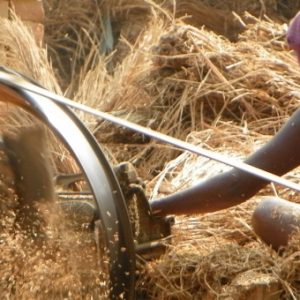
IRI@AGU: Subseasonal Forecasting for the Indian Monsoon
Climate scientist Nachiketa Acharya is at the center of IRI’s efforts to develop a new seasonal forecasting system. He focuses on improving the skill and usability of climate forecasts for users in agriculture, water management and other sectors. Acharya is also actively involved in improving forecasting at the subseasonal scale. Recently, he and other IRI […]

IRI@AGU: Schedule of Events 2019
A range of IRI’s areas of expertise will be represented at this year’s annual meeting of the American Geophysical Union (AGU). Below is the schedule of IRI’s posters and presentations in sequential order. SUNDAY, DECEMBER 8 World Climate Research Programme 40th Anniversary Symposium Lisa Goddard WCRP is celebrating its 40th year of international climate science. We […]

IRI@AGU: Can We Predict “Climate Migrations”?
IRI scientists Ángel Muñoz and Diego Pons are interested in better understanding the root causes of migration in Central America. With their Columbia colleagues, Alex de Sherbinin and Susana Adamo–from the Center for International Earth Science Information Network (CEISIN)–and Diana Giraldo from the University of Reading, they’ve developed a prototype model that considers climate and […]
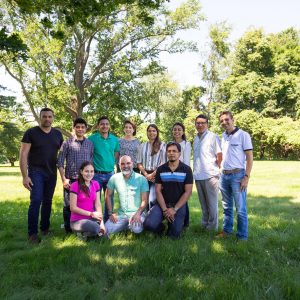
Capacitación Avanzada para Pronosticadores Latinoamericanos
Read this story in English Uno de los objetivos claves del proyecto Adaptando la Agricultura al Clima de Hoy, para Mañana (ACToday) es capacitar a los profesionales que trabajan con información climática en instituciones nacionales y regionales para desarrollar habilidades técnicas. Una de estas sesiones de entrenamiento tuvo lugar durante el verano boreal reciente: siete […]
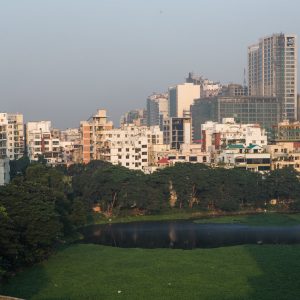
ACToday Q&A: Ashley Curtis on International Projects
With its population of nearly 160 million people, Bangladesh is the eighth most populous country in the world. Its geography – tropical, low-lying, with a sizable coastline – make the country one of the most vulnerable to climate change. Rising sea levels, increased cyclone intensity and frequency, and higher temperatures all pose threats to an […]

Advanced Training for Latin American Forecasters
La version en español esta disponible aquí. One of the key objectives of the Adapting Agriculture to Climate Today, for Tomorrow (ACToday) project is to use trainings to build up the technical skills and capacity of staff working within national and regional climate institutions in the project’s six focus countries. One such training took place […]

IRI Alum Becomes Director of Senegal’s National Meteorological Service
Ousmane Ndiaye, an adjunct research scientist at the International Research Institute for Climate and Society, recently became the director of Senegal’s national meteorology service, which is part of the country’s National Civil Aviation and Meteorology Agency (ANACIM). Ndiaye now oversees all matters related to climate services in Senegal. Ndiaye earned his doctorate from Columbia University […]
Trump admin Dismissed its own Signs of climate change’s Effect on migration from Central America
— KEYC-TV
Trump admin ignored its own evidence of climate change’s impact on migration from Central America
— NBC News
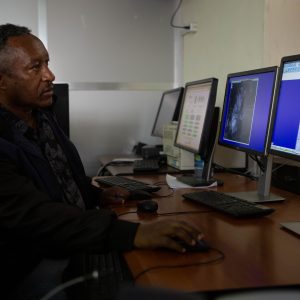
Trainings in Two ACToday Countries Pave the Way for More Knowledge-Sharing
The Adapting Agriculture to Climate Today, for Tomorrow (ACToday) project, is the first Columbia World Project. Led by the International Research Institute for Climate and Society (IRI), ACToday aims to combat hunger and improve food security by increasing climate knowledge in six countries that are particularly dependent on agriculture and vulnerable to the effects of […]

ACToday Q&A: J. Nicolás Hernandez-Aguilera on Coffee and Climate
IRI’s Juan Nicolás Hernandez-Aguilera discusses his research on sustainable coffee production. Originally from Colombia, his interest in the stark contrast between Colombia’s natural resource wealth and high levels of inequality, rural violence and deforestation has manifested in feeling a “responsibility to bring research toward action.”
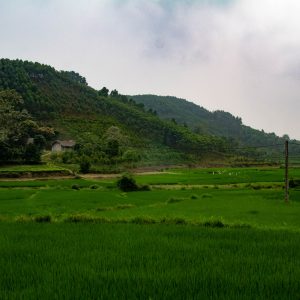
More Than Rice: The Future of Food Security in Vietnam
Columbia World Projects‘ first project, Adapting Agriculture to Climate Today, for Tomorrow (ACToday), aims to combat hunger and improve food security by increasing climate knowledge in six countries that are particularly dependent on agriculture and vulnerable to the effects of climate change and fluctuations —Ethiopia, Senegal, Bangladesh, Vietnam, Colombia, and Guatemala. The project is led […]
Video: Overcoming Barriers to Partnership for Climate Services and Agriculture in Bangladesh
— Agrilinks
ENACTS Climate Data Initiative Officially Launches in Bangladesh
— ICCCD
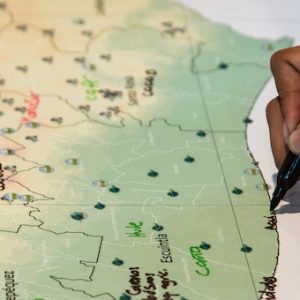
ACToday Helps Unite Farmers and Scientists to Solve Climate Challenges in Guatemala
Adapting Agriculture to Climate Today, for Tomorrow (ACToday) is a Columbia World Project led by the International Research Institute for Climate and Society. The project aims to combat hunger and improve food security by increasing climate knowledge in six countries that are particularly dependent on agriculture and vulnerable to the effects of climate change and […]
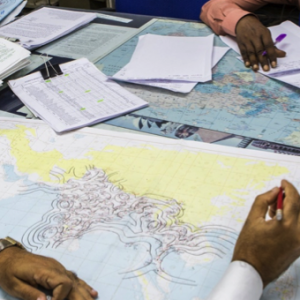
Climate Data Initiative Begins Work on a New Continent
This year, after a decade of operating solely in Africa, the ENACTS initiative is expanding to Bangladesh. This expansion is part of ACToday, a Columbia World Project that applies climate research to efforts to improve food security and nutrition in six countries around the world, including Bangladesh. ENACTS, which stands for Enhancing National Climate Services, […]
2018 Scoping Mission In Guatemala: Food System, Stakeholder Analysis And Climate Services Analysis
Author(s):
2018 Scoping Mission In Colombia: Food System, Stakeholder Analysis And Climate Services Analysis
Author(s):
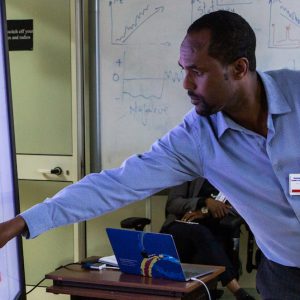
Training the Agents of Change: A New Approach to Reach Ethiopia’s Climate-Vulnerable Farmers
Driving on a new, six-lane expressway, it takes about an hour and a half to get from Ethiopia’s capital, Addis Ababa, to the city of Adama, about 60 miles to the southeast. Around 300,000 of Ethiopia’s 100 million people live in Adama, and at its center it feels just as bustling as the nearby capital, […]
Shade-Grown Can Help Coffee Farmers Maximize Profits, Research Suggests
— Daily Coffee News
Shade-Grown Can Help Coffee Farmers Maximize Profits, Research Suggests
— All About Coffee
Researchers show how coffee growers can optimize profits, sustainably
— Phys.org
Researchers Show How Coffee Growers Can Optimize Profits, Sustainably
— ScienceMag
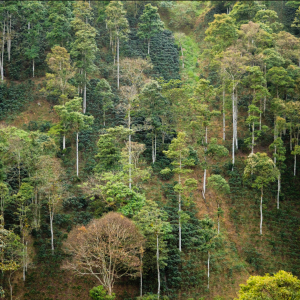
Making Coffee Production Sustainable
First study to quantify economic trade-offs of shifting from conventional to shade-grown coffee production. Model suggests farmers can optimize coffee profits by converting one to two-thirds of their acreage to shade-grown.
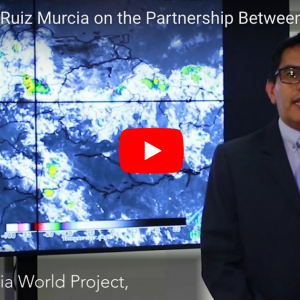
Developing Colombia’s Next Generation of Seasonal Forecasts
Last year, climate scientists from the International Research Institute for Climate and Society visited Colombia’s national meteorological service (called the Institute of Hydrology, Meteorology and Environmental Studies and known by its Spanish acronym, IDEAM) to discuss their continuing partnership and to start developing a more advanced seasonal forecasting system called ‘the Next Generation of Seasonal […]
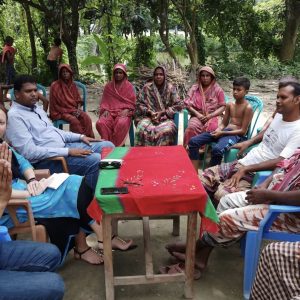
Students Play Central Role in First Columbia World Project
Written by Christopher Shea, Columbia World Projects. It was originally published January 2, 2019 on Columbia World Project’s website. “I will never forget those voices and those faces sitting in front of me,” Sarah Johnson, a student at Columbia’s School of International and Public Affairs (SIPA), said over coffee at a campus café recently, as she described a meeting she had with a group of elderly […]
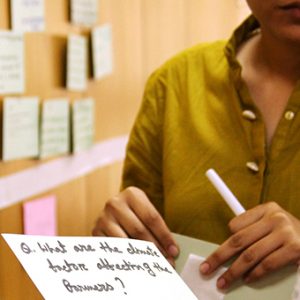
Bangladesh Gets a New Climate Academy
Bangladesh takes new step to integrate climate services into planning around food security

IRI@AGU: What’s Climate Doing to Guatemala’s Coffee?
The Samalá River watershed on Guatemala’s Pacific coast is a highly productive region for staple and cash crops. It’s also known for having one of the highest incidences of natural disasters in the country. Among the diverse agricultural production in the region, coffee stands as one of the most important export crops. Over the last […]
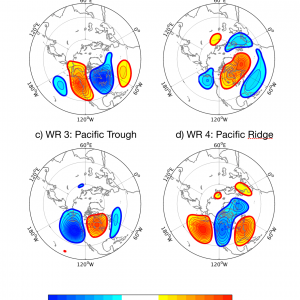
IRI@AGU: Climate Information for Food Systems
Sourcing seeds. Planting at the right time. Using fertilizer. Harvesting crops. Storing food. Shipping food. Setting prices. There are a multitude of decisions made in the systems that bring food to people around the world, and many of these decisions can be better informed by climate information. With the goal of improving the security and […]

IRI@AGU: Schedule of Events 2018
A range of IRI’s areas of expertise will be represented at this year’s annual meeting of the American Geophysical Union (AGU). Below is the schedule of IRI’s posters and presentations in sequential order. MONDAY Climate Services Research and Development: Adapting to Climate Today Lisa M Goddard is the primary convener for both a presentation and poster […]
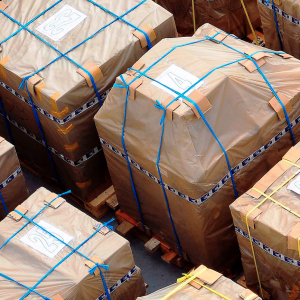
National Climate Assessment: Threats to U.S. International Interests
John Furlow is the Deputy Director for Humanitarian Assistance and International Development of the International Research Institute for Climate and Society. Before joining IRI, he was the lead on climate adaptation at the U.S. Agency for International Development’s climate change office. He also served as an author of the new U.S. National Climate Assessment‘s chapter […]
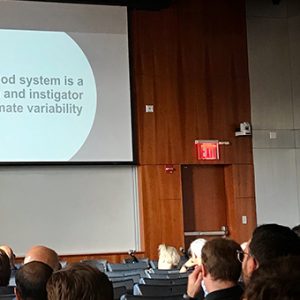
Exploring Climate, Food Systems and Nutrition
Written by Christopher Shea, Columbia World Projects Early one evening in 1987, a fire sparked by a passenger’s lit match broke out in London’s Kings Cross station, injuring 100 people and killing more than 30. Anti-smoking activists, lobbyists and politicians went rapidly to work and within two years London’s smoking regulations had been tightened and […]
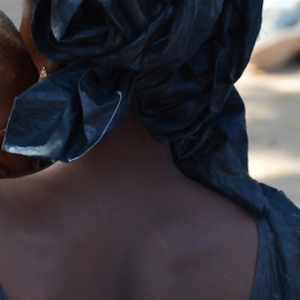
After Ten Years of Index Insurance, What’s Next?
Despite an overabundance of food in some parts of the world, about 815 million people suffered from chronic undernourishment in 2016. Poor nutrition leads to nearly half of deaths in children under the age of five. Many of those who are hungry are farmers and their families. Our food systems clearly aren’t working as well […]
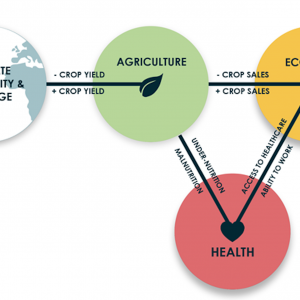
New Book: Climate Information for Public Health Action
A newly published book called Climate Information for Public Health Action gives the health community a primer on why, when and how climate information can and should be incorporated into health research, policy and practice. Madeleine Thomson, a health expert at IRI and faculty member at the Mailman School of Public Health, and Simon Mason, a […]
Improving Availability, Access To and Use Of Climate Information in Ethiopia
Workshop for developing expertise in data and digital solutions to support smallholder farmers in Ethiopia. By Ravina Pattni and Kelly Ward This post originally appeared on the blog of the CGIAR Research Program on Climate Change, Agriculture and Food Security (CCAFS). Climate change is threatening farmers’ livelihoods in Ethiopia. Climate information services are a critical […]
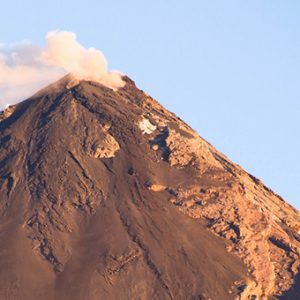
Los pronósticos experimentales podrían ayudar a Guatemala a recuperarse de la erupción volcánica
Por Sarah Fecht. Traducción al español por Manuel Brahm English version available here. El Volcán de Fuego en Guatemala entro en erupción a principios de junio, matando a al menos 110 personas, mientras que cientos más permanecen desaparecidos. Las corrientes de lava y las columnas de humo y ceniza han desplazado a miles de guatemaltecos […]

Experimental Forecasts Could Help Guatemala Recover from Volcanic Eruption
By Sarah Fecht This story originally appeared on the Earth Institute’s State of the Planet blog. La version en español esta disponible aquí. Guatemala’s Volcán de Fuego erupted in early June, killing at least 110 people, while hundreds more remain missing. Streams of lava and plumes of smoke and ash have displaced thousands of Guatemalans, […]
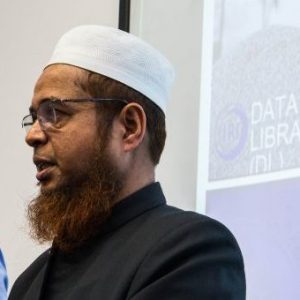
”We need climate information.” – Bangladesh’s agriculture community drives creation of new climate services
A series of three recent training workshops has improved the forecasting capabilities of the Bangladesh Meteorological Department (BMD), while also helping to deepen the relationship between BMD and Bangladesh’s Department of Agriculture Extension (DAE). The activities pave the way for new climate information products developed especially for DAE’s needs, and ultimately to help the farmers […]
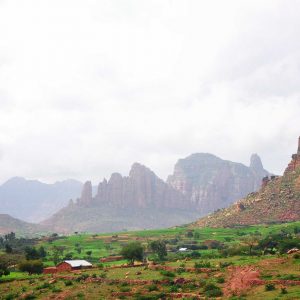
Ethiopia Establishes National Framework for Climate Services
Ethiopia’s economy and the well-being of its people varies, in part, with the climate. Natural climate variability and long-term climate trends both contribute to fluctuations in weather that affect operations in water resources, agriculture, energy, health and more. Periodic droughts continue to cause hunger. Rising temperatures are exposing more people to malaria. But our ability […]
IRI papers make Environmental Research Letters ‘Top 30’ for 2017
Editors at Environmental Research Letters selected two papers written by scientists at the International Research Institute for Climate and Society for the journal’s Highlights of 2017 special issue. The issue features 30 research articles picked for their significance, scientific impact, breadth of appeal and other criteria. “This collection features seminal findings on climate education, oil […]
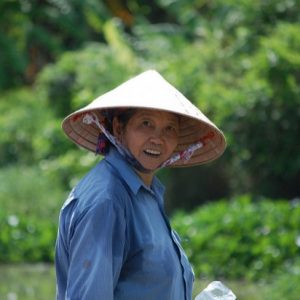
Partnership for a Resilient and Secure Food System in Vietnam
This is an an abbreviated version of a piece originally posted on the website of a partner organization, the CGIAR Research Program on Climate Change, Agriculture and Food Security (CCAFS). Read the full piece here. With a coastline spanning 3,260 kilometers, Vietnam is highly vulnerable to the impacts of climate change, such as sea level rise, […]
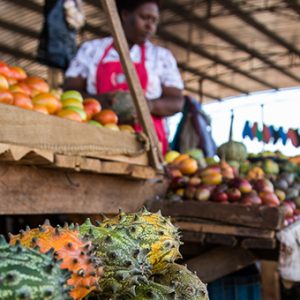
New Columbia World Project to Address Climate Risks to Food in Six Countries
The Earth Institute’s International Research Institute for Climate and Society is leading the first of the newly announcd Columbia World Projects. It focuses on climate threats to food and nutrition in six countries in Africa, Latin America and South Asia and involves a number of institutions and departments across the university.
Columbia launches inaugural project on food security and will host scholars from Obama Foundation
— Columbia Spectator
The Biggest Refugee Camp Braces for Rain: ‘This Is Going to Be a Catastrophe’
— New York Times
Rohingya camps in dire need of disaster response management
— Dhaka Tribune
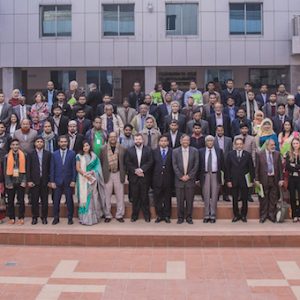
Creating Climate Services in Bangladesh
IRI’s Mélody Braun and John Furlow presented this month at the 4th annual Gobeshona Conference for Research on Climate Change in Bangladesh, held in Dhaka. The conference focused on research-based solutions to local vulnerabilities in Bangladesh and brought together researchers, policymakers, government and non-government representatives, donor agencies and international organizations. Furlow gave a keynote address […]
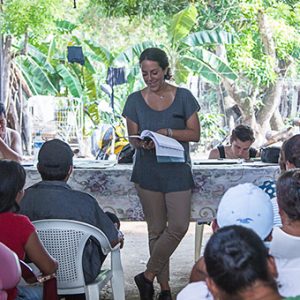
Supporting Science for a Better World
At Columbia’s International Research Institute for Climate and Society, we work to ensure that the most climate-vulnerable people in the world have enough to eat for themselves and their families, stay healthy and keep out of harm’s way. Our work is based on advancing science, building trust, and thinking long term. Why do we do […]
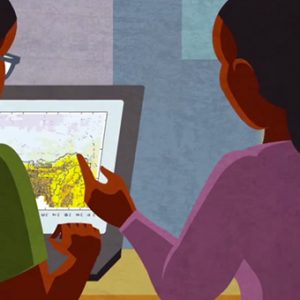
The Big Idea: Farsighted Forecasts
Lisa Goddard directs Columbia’s International Research Institute for Climate and Society (IRI), which helps developing countries anticipate and manage the impacts of climate change. Columbia Magazine asked her to explain how climate scientists can predict weather patterns months in advance, and how their work is improving people’s lives. Columbia Magazine: IRI is at the forefront […]

You must be logged in to post a comment.